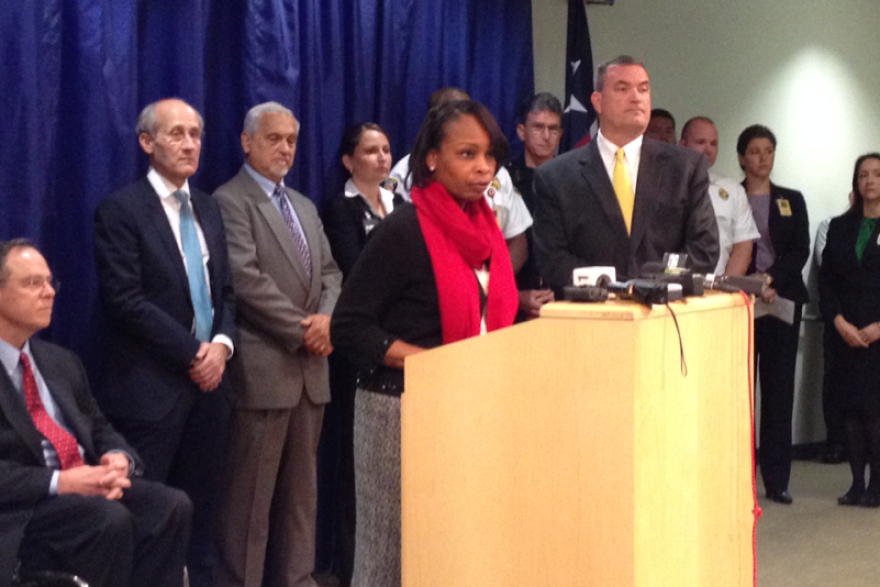The Ebola virus has more and more Texas residents concerned as it spreads to a second healthcare worker. To keep people in San Antonio calm, city and county leaders, along with the major hospital systems, called a press conference to detail their response to potential Ebola patients.
The city’s Emergency Operations Center is abuzz. Health officials, and city and county leaders, even Mayor Ivy Taylor, are all there. And in the unlikely event of Ebola being diagnosed in San Antonio, as Mayor Taylor says, “the infrastructure is in place to handle it.” She adds, “If there were a suspect case reported here, we’ll have a coordinated effort to respond to it expeditiously and efficiently.”
That response includes the Southwest Texas Regional Advisory Council for Trauma, or STRACT, which involves hospitals from over 22 counties. One major concern among healthcare workers is training and protective gear. Patti Toney, Chief Nursing Officer at Christus Santa Rosa, says the level of protective gear for nurses and training has been elevated. “What most of us have done in the last week is step it up one more notch, and actually observe people putting their protective equipment on and taking it off.” Toney believes that having supervised practice sessions is better for the nurses under this situation. “They are reassured that they know exactly how to do that.”
Not everyone who’s ill, however, might look for hospital treatment straightaway. Ken Davis, Chief Medical Officer of Methodist Healthcare says kits that include protective gear for nurses and possible Ebola patients, and accompanying instructions, are also being distributed to doctors in private practice or medical groups. If someone is suspected of having Ebola at one of these locations, EMS will then be called in.
“We don’t expect them (private groups) to draw blood on them (suspected Ebola patients), do X-rays on them; we expect them just to call and transfer, and then we’ve got everybody coming in making sure that clinic is clean. They’re used to managing people with influenza, so they’re used to separating out those that might have infectious diseases in most of these clinics,” says Davis.
The hospital systems and EMS dispatch have implemented a three-question protocol for patients showing symptoms. One of those questions is whether they have traveled recently. If the answer is yes, isolation and testing will begin.


